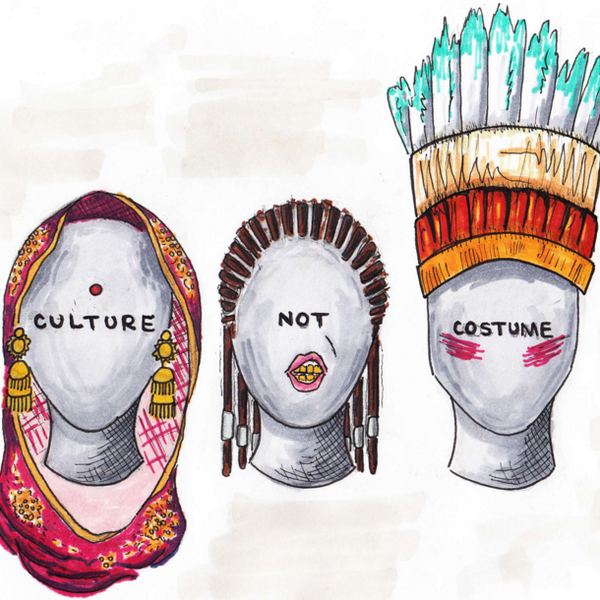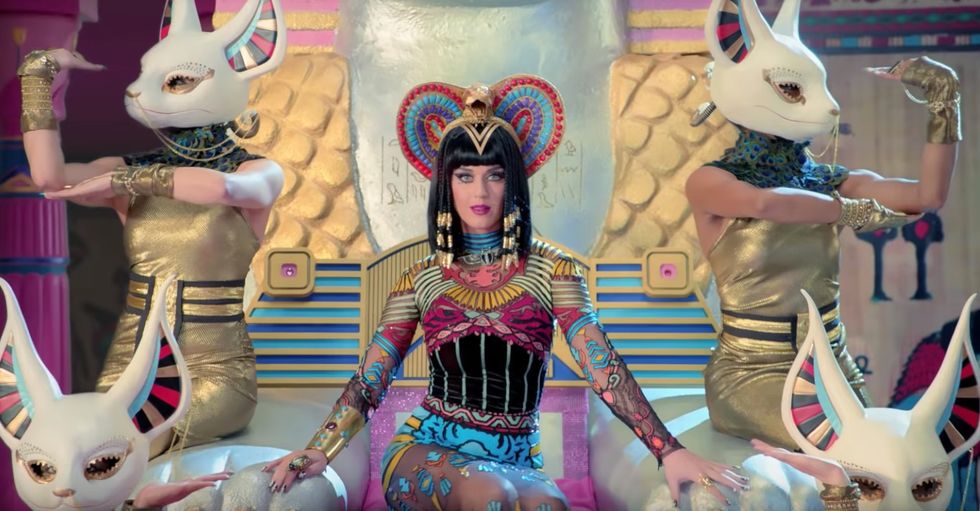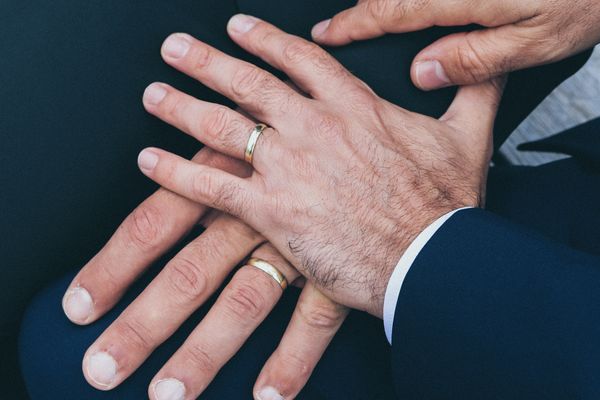The blurred line between cultural appreciation and cultural appropriation has prompted endless debate across mainstream media platforms like Twitter. Controversies, ranging from the Kardashians' choice of traditional African braids to Paris Hilton's choice of Halloween costume as a "sexy Indian," continue to circulate headlines.
Someone's culture is not a costume. Cultural appropriation occurs when a privileged culture borrows and systematically erases elements of a marginalized culture by reducing it into meaningless pop-cultural items. One's culture is more than merely a new style or trend.
Across media, the indigenous peoples are stereotypically perceived as savage, animalistic, and uncivilized. Black hairstyles are stigmatized as being untidy, trendy, thick, and unprofessional for the workplace. Latinas are stereotypically viewed as always wearing large hoop earrings, drawn eyebrows, heavy lipliner, big sombreros, playing a guitar, showing cleavage, and coming from huge families in poor neighborhoods. Muslims are systematically viewed as terrorist and barbaric, wearing long, ungroomed beards. Being Asian means one is immediately deemed as Chinese, stereotypically styling chopsticks in one's hair and wearing a long headdress with a cool dragon.
However, something that many people are unaware of is the systematic oppression of cultures like indigenous Hawaiians, also known as the Kanaka Maoli peoples.
On January 17, 1893, an illegal US overthrow of Hawaii's government took place, and colonization of the land abruptly transpired. Three years later, the Hawaiian language was banned in all schools. English soon became the sole language taught in classrooms. Eventually, Hawaiian children were even punished in school for speaking their native tongue, and those who spoke the Hawaiian language at home were ridiculed. This systematic suppression of Hawaiian culture took place for generations. As a result, Hawaiian culture almost became lost since parents and grandparents felt uncomfortable passing their native traditions to their own children.
Because of the Indigenous peoples' historical struggle with whitewashing, many native elders are only now beginning to learn how to craft traditional Hawaiian hula skirts and leis, the process to create a traditional Hawaiian hula skirt is very meticulous and can take weeks of preparation. A traditional hula skirt is a very sacred memento of the Hawaiian culture, so being culturally sensitive and aware of its history is necessary before any form of cultural exchange.
Therefore, wearing whitewashed fragments of another's culture — like a cheap colorful hula skirt from the dollar store — is demeaning, offensive, and diminishes the historical struggles and narratives that people of one's culture have undergone and challenged to get into the position where they are today.
Similarly, this underlying principle applies to treatment of other marginalized cultures, too. Keep in mind these things just to make you're not crossing a line before any form of cultural exchange.
1. Do not use Halloween or a wild party as an excuse to appropriate someone else's culture.
Halloween is a festive holiday based on wearing something scary or humorous, so by choosing to wear traditional clothes of another culture, one is essentially mocking and belittling elements of someone else's culture and maneuvering the cultural attire into a joke instead of something to appreciate. Jamming out in a Native American headdress or an Indian bindi just because it looks trendy and sexy? Sporting cornrows when your hair clearly does not need it, and claiming that they're just box braids or Kim Kardashian braids? Getting a tribal tattoo when you have no idea about the cultural significance behind the actual design? That's appropriation.
2. Blackface or redface is never OK because, well, it's racist.
However, don't worry, you can still appreciate another culture by learning about their different practices and traditions. Cultural appreciation means making a genuine effort to honor and learn another cultures' arts and customs with mutual respect in order to gain a new worldview different from your own. Trying an authentic cuisine? Getting cornrows braids styled by a black hairstylist while still acknowledging the cultural and historical ties of getting braids done in the African American community? Traveling to new countries, and following their customs? Being invited to a cultural event or a ceremony like an Indian wedding, and wearing their cultural attire? That's appreciation.
Ultimately, here's the bottom line: don't appropriate, appreciate!





















